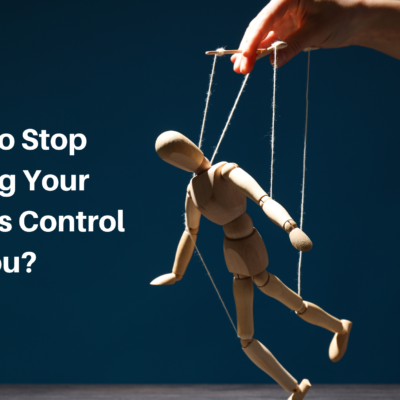How to Stop Letting Your Emotions Control You: In our complex life human experience, emotions play an important role. They shape our perceptions, affect our decisions, and shape our relations. While emotions are an essential part of us, permitting them to take control can lead to bad outcomes.
Learning how to manage and regulate emotions is important for personal well-being and supporting healthy relationships. In this article, we will talk about the strategies and techniques to stop letting your emotions control you.
Also Read:
- Top Strategies for Dealing with Negative Emotions.
- Overcoming My Insecurities: Strategies for Self-Discovery.
- How To Get Over Your Insecurities and Jealousy?
- Healthy Way to Deal with Stress.
- I Am Afraid To Be Alone- Causes and Prevention Tips.
How to Understand Your Emotions?
Before talking about the strategies for emotional control, it is important to understand the nature of emotions. Emotions are complicated responses to different triggers, usually arising from our thoughts, experiences, and external events. They can vary from joy and love to anger and fear, each performing a special purpose in our lives.
Recognizing the triggers and patterns of your emotional reactions is the first step toward gaining control. Mindfulness, a practice that includes being completely present in the moment without judgment, can help you keep your emotions without getting overwhelmed by them. By understanding the sources of your emotions, you can begin the journey toward learning emotional control.
How to Stop Letting Your Emotions Control You?
Develop Self-Awareness
Self-awareness is the basis of emotional intelligence. It includes identifying and understanding your own emotions as they occur. Pay attention to the physical sensations, thoughts, and behaviors connected with different emotions. Journaling can be a powerful tool to track your emotional habits and recognize regular triggers.
By developing self-awareness, you create a space between the trigger and your response, letting you choose how to react intentionally. This self-reflection allows you to step back and evaluate the situation objectively, instead of reacting impulsively.
Practice Mindfulness and Meditation
Mindfulness and meditation are useful practices that can help you develop emotional control. These techniques enable you to concentrate on the present moment, encouraging a sense of calm and clarity. Regular mindfulness practices, such as deep breathing exercises or meditation, can prepare your mind to stay centered and decrease the impact of overwhelming emotions.
Being mindful not only helps you monitor your feelings without judging them but also gives you a mentally safe place to go when your emotions feel really strong. Over time, these practices can reshape the neural pathways in your brain, making emotional regulation a more natural and ingrained skill.
Challenge Negative Thought Patterns
Our emotions are usually closely tied to our thoughts. Negative thought patterns can fuel emotions like anxiety, anger, or sadness. To break free from the hold of these emotions, it is important to identify and challenge negative thoughts.
When faced with a challenging situation, question the validity of your thoughts. Ask yourself whether your beliefs are based on facts or imaginary perceptions. Cognitive-behavioral techniques can be extremely helpful in restructuring negative thought patterns. Replace unreasonable thoughts with more balanced and realistic ones, promoting a healthier emotional reaction.
Establish Healthy Coping Mechanisms
Instead of surrendering to impulsive reactions, create healthy coping tools to handle stress and negative emotions. Engage in activities that bring you joy and relaxation, such as exercise, art, or spending time in nature. Having a range of healthy coping techniques empowers you to handle difficult emotions constructively.
Additionally, developing a strong support system can provide a valuable outlet for expressing and processing emotions. Share your feelings with trusted friends, family members, or a therapist who can offer advice and viewpoints. Social connections can provide emotional support and help you gain insights into your own emotional condition.
Set Boundaries
Maintaining emotional control also includes setting clear boundaries in your relationships and daily life. Learn to identify when you need to step back from a situation to control emotional overwhelm. Establishing boundaries ensures that you prioritize your well-being and control external forces from controlling your emotions.
Communicate openly with others about your needs and limits. Saying “no” when essential is not a sign of weakness but an example of self-respect. By setting boundaries, you create a steady foundation for emotional regulation and protect yourself from excessive stress.
Develop Strength
Strength is the ability to bounce back from trouble and challenges. Developing strength can strengthen your emotional well-being, making it more comfortable to weather the storms of life without being swept away by extreme emotions. Embrace setbacks as possibilities for growth and learning, reframing negative experiences into valuable lessons.
A positive mindset and a belief in your ability to overcome challenges contribute to strength. Practice self-compassion and avoid harsh self-criticism during tough times. By seeing challenges as temporary, you empower yourself to maintain emotional control even in the time of difficult situations.
At The End
Mastering emotional control is a lifelong journey that needs self-reflection, mindfulness, and intentional effort. Remember, the goal is not to remove emotions but to guide them with grace and intelligence.
Embrace the richness of the human experience while providing yourself with the tools to react to emotions in a way that aligns with your values and aspirations. As you start this journey, be patient and compassionate with yourself, celebrating each step toward greater emotional mastery.








